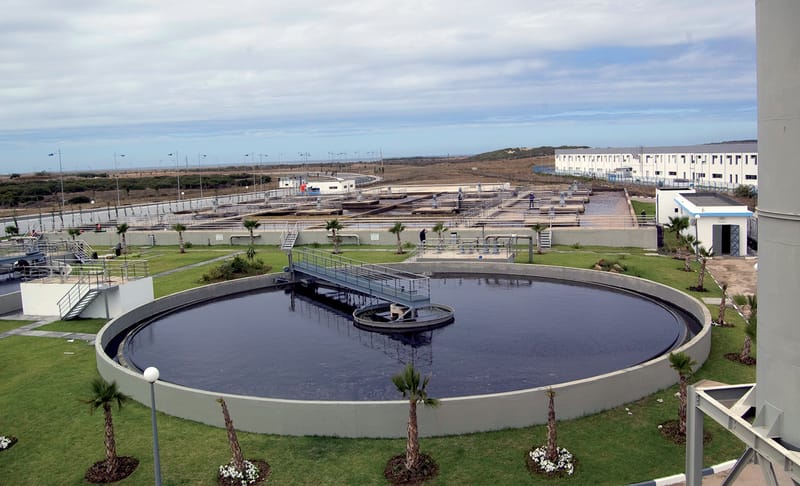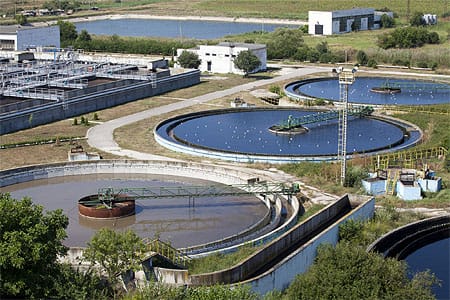Reusing Wastewater in Car Wash Operations: Driving Toward Sustainability
Wastewater Reuse in Car Washing
In an age where environmental sustainability is paramount, industries are actively seeking innovative solutions to mitigate their ecological impact. Among these sectors undergoing significant transformation is the car washing industry. Historically characterised by excessive water usage and indiscriminate discharge of untreated wastewater, car wash facilities are now embracing advancements in wastewater treatment technologies. This paradigm shift reflects a growing awareness of the need to reclaim and reuse car wash wastewater, signaling a promising step towards a more sustainable future.
Traditionally, car wash operations have been associated with significant water consumption, often resulting in the discharge of untreated wastewater into sewer systems. This practice not only contributes to water scarcity concerns but also poses environmental risks due to the release of contaminants into natural water bodies. However, recent developments in wastewater treatment have unlocked the potential for car wash facilities to adopt more responsible practices. By implementing innovative treatment technologies, such as membrane bioreactors and chemical coagulation processes, car wash operators can effectively treat and recycle wastewater on-site, minimizing their environmental footprint while conserving valuable water resources.
This shift in car wash operations underscores a broader trend towards sustainability within the automotive industry. By embracing wastewater reuse initiatives, car wash facilities can reduce their reliance on freshwater sources, mitigate pollution, and demonstrate a commitment to environmental stewardship. Moreover, as public awareness of water conservation and environmental protection grows, consumers are increasingly favouring businesses that prioritize sustainable practices. Thus, the journey of wastewater reuse in car wash operations not only aligns with environmental objectives but also presents a strategic opportunity for businesses to enhance their reputation and competitiveness in a changing market landscape.

Understanding the Complexity: Characteristics of Car Wash Wastewater
Car wash wastewater presents a multifaceted challenge due to its diverse composition, comprising nutrients, organics, particulate matter, sand, oil, grease, and detergents. This intricate blend not only poses environmental risks but also complicates wastewater treatment processes. Furthermore, the sheer volume of wastewater generated by car wash facilities is staggering, with some sites producing thousands of litres daily. This substantial quantity magnifies the environmental impact, emphasizing the pressing need for effective treatment and management strategies.
Beyond environmental concerns, the significant volumes of untreated car wash wastewater represent a squandered opportunity for resource conservation. Recognizing the inherent value of water as a finite resource, the inefficient disposal of wastewater underscores the necessity for innovative solutions to reclaim and recycle this valuable asset. Researchers and industry experts acknowledge the importance of addressing this challenge and actively explore various treatment methods to enhance the environmental sustainability of car wash operations. Through the reclamation and recycling of car wash wastewater, it becomes feasible to mitigate environmental impact, curtail water consumption, and contribute to the broader sustainability of the automotive sector.

Innovative Treatment Approaches
Coagulation: Aggregating Contaminants for Purification
Coagulation plays a pivotal role in the treatment of car wash wastewater. Through the strategic application of coagulants, this chemical process facilitates the clustering of contaminants, leading to the formation of larger particles that are easier to remove. The effectiveness of coagulation in eliminating suspended solids and enhancing water clarity makes it a promising method for improving the quality of car wash wastewater. Ongoing advancements in coagulation techniques refine its utilization in car wash wastewater treatment, offering greater precision and effectiveness.
Ozonation: Harnessing Ozone's Oxidative Power
Ozonation presents another innovative approach to treating car wash wastewater. By harnessing the potent oxidative properties of ozone, this process efficiently decomposes and eradicates pollutants found in the wastewater. Chemical compounds and suspended solids are targeted and degraded, resulting in the production of cleaner and safer water suitable for reuse. The versatility of ozonation positions it as a valuable asset in the pursuit of sustainable car wash operations. Continuous technological developments aim to optimize ozonation techniques, further enhancing its efficacy and applicability in wastewater treatment.
Membrane Bioreactors: Redefining Water Quality Standards
Among the most groundbreaking treatment technologies is the membrane bioreactor (MBR), which integrates biological degradation with membrane filtration. This synergistic approach empowers MBR systems to achieve unparalleled levels of water quality, surpassing conventional treatment methodologies. Through MBRs, upwards of 99% of suspended solids can be efficiently removed, accompanied by substantial reductions in chemical oxygen demand (COD). These remarkable outcomes position MBR technology at the forefront of efforts to recycle car wash wastewater. As advances in membrane technology persist, MBRs hold immense potential for revolutionizing car wash operations, propelling them towards sustainability and environmental responsibility.

Assessing Treatment Efficiency and Feasibility
Cost Considerations: Balancing Investment and Returns
One of the primary considerations in assessing treatment efficiency is the cost associated with implementation, operation, and maintenance of treatment systems. While membrane filtration technologies like MBRs offer high-quality effluent suitable for reuse, they often come with substantial upfront investment costs. Evaluating the long-term returns and benefits against the initial investment is crucial in determining the feasibility of such systems. Additionally, ongoing operational and maintenance expenses must be factored in to ensure the economic viability of the chosen treatment method.
Space Requirements: Maximizing Efficiency in Limited Areas
Another factor to consider is the space requirements of treatment systems, particularly in the context of car wash facilities where space may be limited. Membrane bioreactors, despite their effectiveness, may demand significant physical space for installation and operation. Balancing treatment system efficiency with space constraints becomes essential in optimizing the overall functionality of the car wash operation. Innovative design approaches and compact treatment solutions may offer alternatives to traditional systems, enabling efficient water treatment within confined spaces.
Understanding the Challenge: Car Wash Wastewater Composition and Volume
Car wash wastewater presents a multifaceted challenge due to its diverse composition, containing a mixture of contaminants such as nutrients, organics, particulate matter, sand, oil, grease, and detergents. This complex blend not only poses environmental risks but also complicates the wastewater treatment process. Additionally, the substantial volume of wastewater generated by car wash facilities, often reaching thousands of litres per day, exacerbates its environmental impact. Urgent action is needed to address these challenges and implement effective treatment and management strategies to mitigate the impact on the environment.
Regulatory Compliance and Public Perception: Meeting Legal and Social Expectations
Achieving regulatory compliance and managing public perception are crucial aspects of adopting reclaimed water for car washing. Adherence to regulatory standards ensures that treated wastewater meets quality guidelines and poses no threats to public health or the environment. Furthermore, building public trust and acceptance through transparent communication and education initiatives is essential to overcome any skepticism surrounding recycled water use. Proactively addressing regulatory requirements and engaging stakeholders can instill confidence in the safety and feasibility of wastewater treatment practices employed by car wash facilities.
Charting the Path Forward: Toward Sustainable Car Wash Practices
Looking ahead, wastewater reuse presents significant opportunities for transforming car wash operations. By embracing innovative treatment approaches and adopting sustainable practices, car wash facilities can substantially reduce water consumption, minimize environmental impact, and contribute to water conservation efforts. Moreover, reclaiming and recycling wastewater can yield cost savings and enhance overall operational efficiency. Achieving sustainable car wash operations requires collaborative efforts, ongoing innovation, and a steadfast commitment to environmental responsibility from all stakeholders involved.